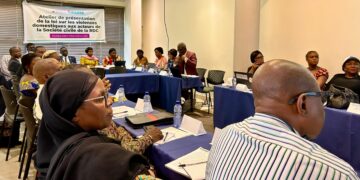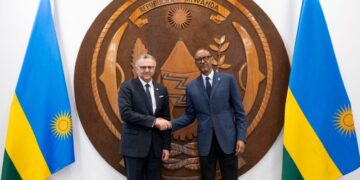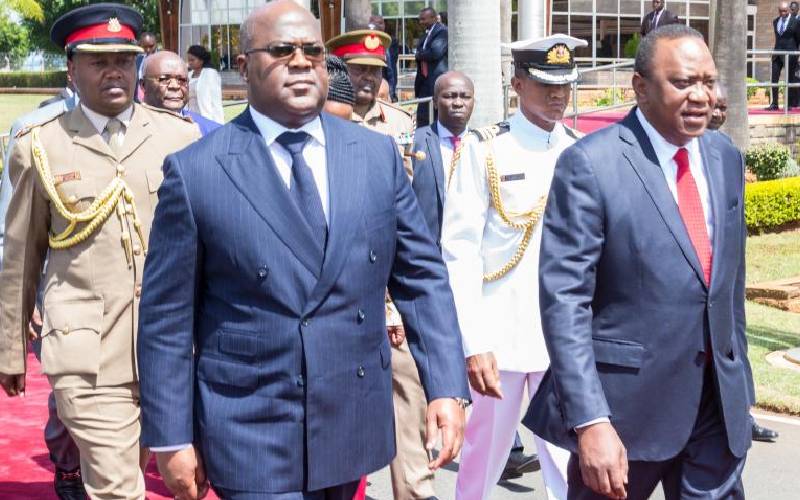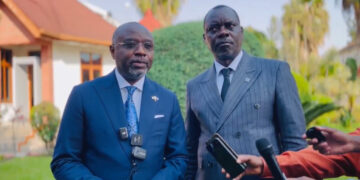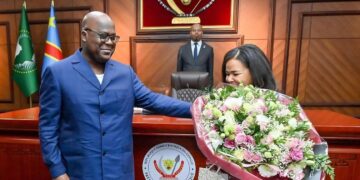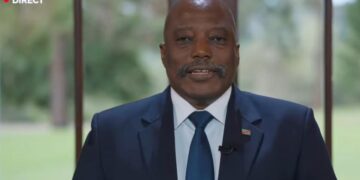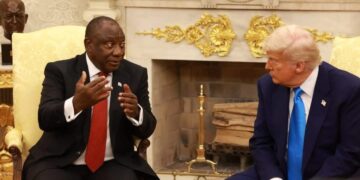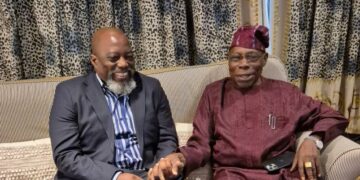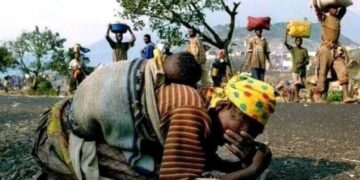In a powerful statement, Epenge denounced what he called a “historic betrayal” orchestrated by President Félix Tshisekedi, accusing him of mortgaging the nation’s strategic resources — its minerals, national parks, lakes, gas reserves, gold, and fertile lands — in just six years of what he termed a “fraudulently acquired presidency.”
“History will remember that, in order to survive politically, Félix Tshilombo chose to mortgage Congo’s minerals, parks, lakes, gas, gold, and land — all within just six years of a corruptly obtained rule,” declared Prince Epenge.
A Deal for Peace — or a Deal for Exploitation?
While acknowledging the need for dialogue and agreements to restore peace in the conflict-torn East of the country, Prince Epenge firmly opposes what he describes as a “co-management” of Congo’s destiny.
According to Epenge, the true nature of the Washington agreement effectively grants Rwanda — through American corporate presence — what Paul Kagame failed to secure through warfare: massive and indirect access to Congo’s wealth.
Under this arrangement, American companies would establish their operations in Rwanda, generating jobs and strengthening Kigali’s economy, while the DRC would be reduced to a giant extraction site, with its natural riches siphoned off without bringing any sustainable development or benefits to its own people.
A Stern Warning to the Congolese People
Prince Epenge calls for vigilance and mass mobilization:
“The people must rise, for Congo — a land of future and hope — is under threat!”
He urges every Congolese citizen to resist the looting of their homeland disguised as peace deals, to reject the imposed co-management by foreign powers, and to defend the nation’s sovereignty against diplomatic arrangements that primarily serve other nations’ interests rather than Congo’s own development.
Key Stakes Surrounding the Washington Agreement
• National Sovereignty:
Major risk of Congo losing real control over its strategic resources.
• Economic Development:
Economic value and industrial growth would shift to Rwanda and multinational corporations, leaving Congo underdeveloped.
• Political Stability:
Heightened risk of internal tensions and public outrage over perceived national betrayal and dispossession.
• Sustainable Peace:
Serious doubts remain about whether such agreements can bring lasting peace if the root causes of conflict — resource plundering, economic marginalization, and manipulated ethnic tensions — are not addressed.
At a time when the DRC seeks to emerge from decades of conflict and instability, the Washington agreement is seen by many not as a solution but as a new and profound threat to Congo’s sovereignty, dignity, and the dreams of its people.
As Prince Epenge solemnly reminds us, history will judge those who made critical decisions during these defining moments.
The debate is wide open:
Peace — at what price?
Development — for whose benefit?
Congo — for whom?




